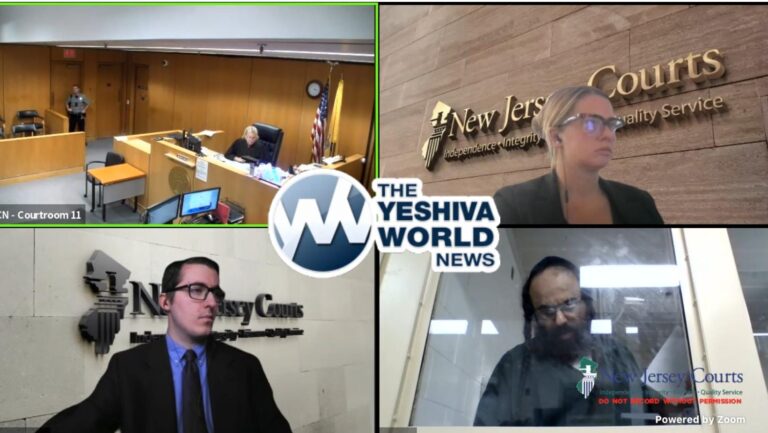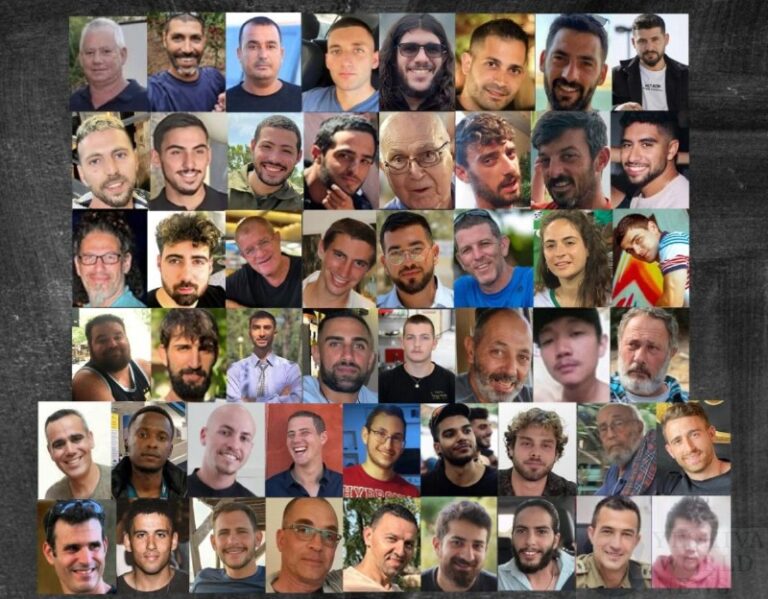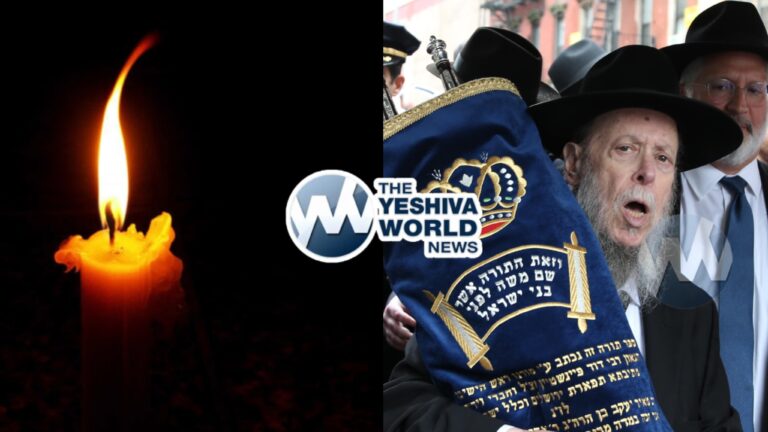 [By Rabbi Yair Hoffman]
[By Rabbi Yair Hoffman]
An Op-Ed appeared recently in the Wall Street Journal by Rabbi Shmuly Yanklowitz that can only be described as a terrible blurring of lines. Rabbi Yanklowitz was explaining why he, as an Orthodox Rabbi, will no longer be eating Kosher meat because, as it is currently produced, the animals are raised on the very same animal-rights-abusing farms as non-kosher meats are raised.
This article is not about government (or for that matter Rabbinic) oversight on the way animals are treated at farms across America, however correct that call may be. This article is about something else.
It is about the Wall Street Journal misrepresenting the author of their Op-Ed as an orthodox Rabbi.
Popular though he is, an analysis of Rabbi Shmuly Yanklowitz’s literary oeuvre will demonstrate that he cannot at all be described as following the views of Orthodox Judaism. His writings, from a theological perspective, are not by any means orthodox.
Rabbi Shmuly Yanklowitz’s writings on Mashiach being a Christian concept that influenced Judaism, and other writings of his, clearly place him far outside the orbit of Orthodox Judaism. The following quotes are from an article he had published in the Jewish Week, February 1, 2012.
“We have made too many mistakes throughout history, thinking that the Messiah is a person or event.. It was Christian influence that helped further this idea of the single divine human. The Jewish notion, preceding that, suggested that all people are imbued with Divinity.”
“At the end of the day, I would like to suggest that we are Moshiach—we are the ones we have been waiting for.”
This article is a flat-out denial of a cardinal principle of Judaism – the arrival and anticipation of Moshiach. He has written that the identity of the much waited for Messiah is “us.” This flies in the face of the Talmud, Maimonides and thousands of years of Jewish tradition.
It is disingenuous for Rabbi Shmuly Yanklowitz to claim that he is Orthodox and deny fundamentals of Judaism.
In a Tisha B’Av reflection, this past Tisha B’Av, Rabbi Yanklowitz actually denies the rebuilding of the third Beis HaMikdash. Below are some quotes and the link.
“The fantasy of returning to one centralized monolithic form of Judaism is not only wishful thinking. It’s also dismissive of two of the most important aspects of modern Jewish life: diversity and adaptability.”
“Further, in any centralized system of authority, abuses of power and limits of transparency and empowerment have proven to be inevitable. The new paradigm that the Temple’s destruction and exile from Israel enabled is one that says, Bring G-d into your hearts and into the wide world every day and in every way; the Temple was a vehicle for this once, now we have so much more.”
“ It is natural to long for past models in a world of uncertainty but we must move forward with courage, creativity, and open hearts to build a world of justice, kindness, and holiness where G-d can reside.”
These articles and more have placed Rabbi Shmuly Yanklowitz far outside the orbit of Orthodox Judaism. The “I’m okay, your okay” attitude cannot stretch the boundaries of the umbrella of orthodoxy to include someone who denies the meaning of the idea of Moshiach and of rebuilding the Beis HaMikdash.
This is not a matter of misinterpretation, he really writes and believes this. The very Tefilos of our synagogues, our Shmoneh Esreh, indeed, even of the last line in the counting of the Omer would have to be thrown out in order to comport with Rabbi Shmuly’s theological writings.
It is particularly sad, because it is clear that Rabbi Shmuly is a man with remarkable sensitivities. His work in Haiti, in improving conditions for prisoners, in calling for greater transparency in charitable organization, all point to a lofty soul. His concern for social welfare, for immigrant rights, for the downtrodden and weak; indeed, his concern for others, all others – are all very important and admirable qualities.
And while it is true that Rabbi Shmuly Yanklowitz had once received semicha from Rabbis who themselves had graduated from Orthodox institutions, that does not make someone an orthodox Rabbi. There is obfuscation going on here, of the highest order. The obfuscation involves not only this Rabbi, but an entire group of others, presenting their ideas that lie far beyond the pale of orthodoxy, as if they are orthodox.
Chovevei Torah and Open Orthodoxy have taken the most radical positions on issues of Biblical Criticism, changing the formulation of blessings instituted by the Men of the Great Assembly, recognizing marriages that the Torah clearly prohibits and engaging in interfaith activities that are clearly forbidden by Halacha.
Rabbi Zev Farber, a leading Open Orthodox thinker, has taken the position that Sefer Dvarim was not written by Moshe Rabbeinu and came significantly later. This is not and cannot comport with the theological views of the Talmud, the Shulchan Aruch, and Orthodox Judaism. [See HERE for example, and HERE for starters.
Elsewhere Rabbi Farber has written,
“The same holds true of the description of the development of Israel. The idea that the twelve tribes of Israel were formed by the twelve sons of Jacob has all the appearances of a schematic attempt of Israelites to explain themselves to themselves: “We are all one family because we are all children of the same father.” These Torah stories are not history, the recording of past events, they are mnemohistory, the construction of shared cultural-memory through narratives about the past.
…It is impossible to regard the accounts of mass Exodus from Egypt, the wilderness experience or the coordinated, swift and complete conquest of the entire land of Canaan under Joshua as historical. The popular idea that the Torah’s holiness stems only from the historicity of its claims, dictated by the mouth of G-d, strikes me as an attempt to depict the Almighty as a news reporter.”
[See HERE]
It is painful to write this, because we do want to include as many people as possible within the umbrella of Torah true Judaism. However, in light of the above, presenting Open Orthodoxy as part of Orthodoxy is just plain not honest.
The Wall Street Journal should issue a clarification.
The author can be reached at [email protected]
NOTE: The views expressed here are those of the authors and do not necessarily represent or reflect the views of YWN.











14 Responses
Mr. Yanklowitz is a liar. He has been a vegetarian for many years already. He did not become one recently. He deceitful attempt to portray himself having made a recent decision to become a vegetarian due to so-called unethical things he supposedly discovered in kosher meat processing is sheker vchozov.
Yair: Yanklowitz being a bleeding-heart Haiti-trotting liberal does not make him lofty, remarkable or admirable in any sense whatsoever.
Yanklowitz is a bad seed. Some of their people really believe in what they’re doing, misguided though they may be. But this guy is just a publicity seeker and he’ll throw Jews under the bus to get it.
Reading his Wall Street Journal op ed on Friday, I immediatly thought that he must be one of Avi Weiss’ seminary graduates. If the man is so against the large scalemeat and poultry plants he should do as his great grandparents did in the old country, either learn to shecht of find a local shochel to whom he can bring the poultry.
Beware everyone! this mentality smells selfish and egocentric pple! any human being; orthodox or ultra that thinks that their work is done and it is he above all that counts. One that understands Bishvil yisrael nikra reishis as he himself but not as one so he can be an oved hashem and connect with god in every step of the way is in danger too. So for all those that knock and close their minds to the powers greater than them or to those that allow their n respect towards the greater power (hashem) reflect in their daily look and lives and derech are in danger too. So if this “rabbi” yanklowitz learnt in orthodox institutions and came out like this. And these institutions being precisely the ones to knock and intimidate those that have recognized a power greater than them in every sense of the world and step in their life by dress, learning torah all the time etc…. then these institutions should need to rethink their messages and actions so they avoid having one more talmid or themselves chas vesholom fall and stoop to this level.
correction:
So for all those that knock and close their minds to the powers greater than them or knock those that allow their respect……..
I don’t know R’ Yanklowitz and never heard of him before reading the WSJ article – but why does R’ Hoffman use this op-ed as a means to bash Chovevei Torah and Open Orthodoxy?
He should just say that in his opinion, R’ Yanklowitz doesn’t represent orthodoxy, or his interpretation of such?
This is purely using a platform incorrectly.
What’s next? Ban leggings?
1Jew2opinions: “He should just say that in his opinion, R’ Yanklowitz doesn’t represent orthodoxy, or his interpretation of such?”
Perhaps you missed the point. This is not Rabbi Hoffman’s opinion as you write. The Gemora, the Rambam, and many others state clearly what sort of statement defines the speaker as an apikorus. One who denies that even one pasuk of the Torah was not spoken by HaShem, that Moshe Rabbeinu wrote it mi’daato, is one such statement. Rav Y. D. Soloveitchik z”l went so far as to explain the Gemora as saying that one who denies there was a nes shemen on Chanukah is also included in this category.
This brings to mind what R’ Gifter Z’L would say; “I am not an Orthodox Jew. I am a Torah Jew”.
One can define “orthodox” any way they want (i.e. mainstream, ultra, modern, etc.). A Torah Jew lives by what the Torah says which includes everything it says. We cannot pick and choose or change the Torah.
One can wear a streimel and NOT be a Torah Jew while one can wear a kippah serugah and BE a Torah Jew. Furthermore, “we” should not disparage those who are doing wrong. “We” should educate them.
Dear Rabbi Hoffman: I agree with your theological points. May Hashem inspire them to make teshuvah for their errors and return to Orthodoxy.
I just have two questions for clarification. First, can you really say that YCT has official stands in favor of Biblical criticism or any other deviation from Orthodoxy? Or is it just that some of the faculty or graduates have certain positions? From what I’ve seen of their website, they seem to have no official positions other than a brief mission statement. If this is the case, shouldn’t each faculty member or graduate be evaluated individually to determine whether he is Orthodox?
Second, it’s nice that you praise his humanitarian work. But you completely neglect to say anything about the substance of his letter. I’ve seen people say it’s assur to be vegetarian to reduce animal suffering. But if there’s good evidence for widespread abuses, and lots of unnecessary suffering in the living conditions of animals on today’s factory farms, shouldn’t one be permitted to abstain from meat to avoid supporting these possible violations of tzaar baalei chaim? Wouldn’t this be praiseworthy (as long it is not inspired by the belief that animals have a right not to be eaten)? After all, people adopt personal chumros going beyond the bare minimum requirements of the law in so many other areas of law.
working #9: “One can wear a streimel and NOT be a Torah Jew while one can wear a kippah serugah and BE a Torah Jew.”
I suppose that it is theoretically possible for such a scenario.
The WSJ article was also inaccurate.
1. There is no plant that supplies the kosher market that uses “shackle and hoist” as its shechita method
2. The USDA’s official communication on the incidents at the Shrewsbury NJ plant find no wrongdoing on the part of the Kosher staff
3. Due to KOSHER concerns no “downer” animal that cannot walk or even has trouble walking would every be used for kosher
geula – may I recommend proof reading before posting? Your commend was difficult to follow.
working – for years I’ve held that we should stop calling ourselves “Orthodox Jews” and instead call ourselves “Torah Jews”. I did not know that Rav Gifter, z”l made such statement. Thanks for the post!
I guess I put my foot in my mouth this time. LOL